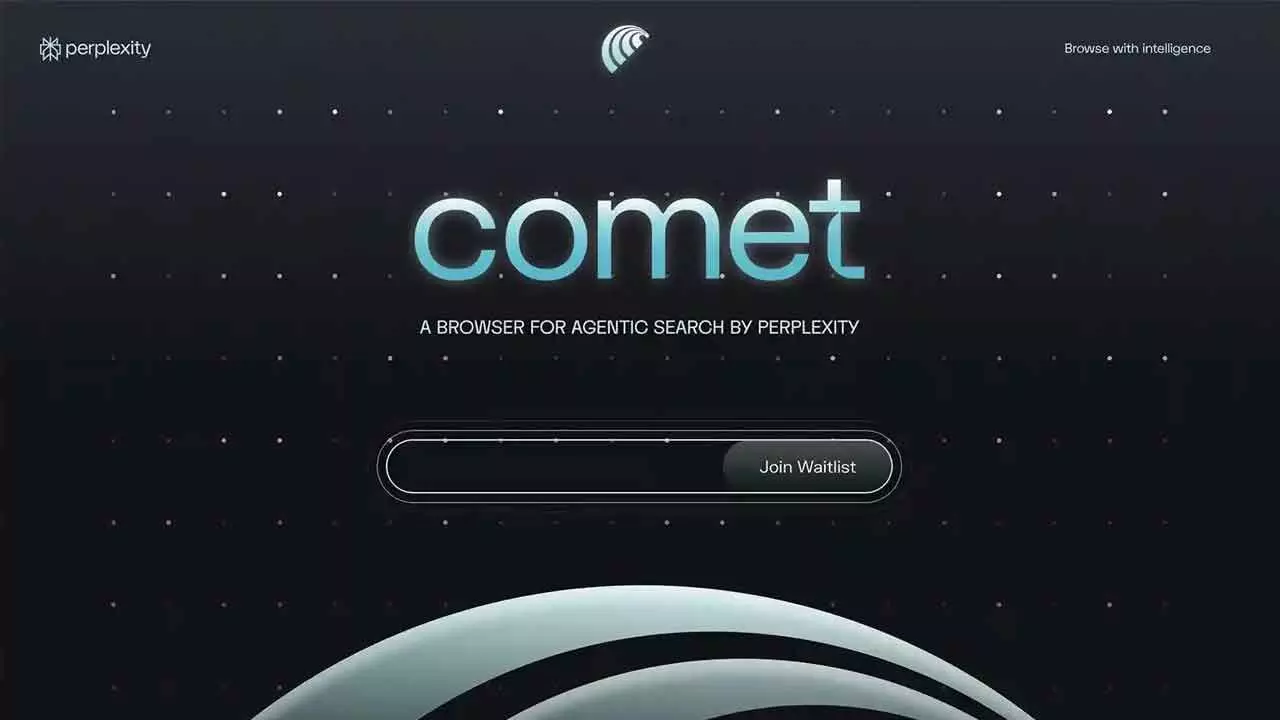Is Google Chrome Obsolete? Perplexity AI's Comet Ignites the AI Browser Wars
Perplexity AI's new Comet browser, with its revolutionary AI Assistant and privacy features, is set to challenge Google Chrome's dominance. Discover how this new wave of AI browsers, including an anticipated release from OpenAI, could transform your online experience.
Is Google Chrome Obsolete? Perplexity AI's Comet Ignites the AI Browser Wars

The competition in AI-powered Browse is heating up dramatically. Perplexity AI has just launched Comet, a bold new browser designed to directly challenge Google Chrome's long-standing dominance. Adding fuel to the fire, rumors suggest OpenAI is mere weeks away from unveiling its own AI browser, intensifying this rapidly evolving battle.
Comet, currently accessible by invitation to Perplexity's $200-a-month Max subscribers, is built on Chromium and supports both Windows and Mac. What makes the transition seamless for users? Comet features Perplexity as its default search engine and allows for easy import of Chrome extensions, bookmarks, and settings. This emphasis on a hassle-free migration is a key strategic move.
Perplexity AI CEO Aravind Srinivas shared on X that he had previously offered Perplexity as a default search option to Chrome, only to be rejected. "Hence, we decided to build the Perplexity Comet browser," he stated, underlining the company's determination to forge its own path. It's also worth noting that both Apple and Meta have reportedly been trying to acquire Perplexity AI, highlighting the company's significant standing in the AI landscape.
Aman Kabeer, an investor at FirstMark, lauded Comet as "a masterpiece of a release," particularly praising its effortless one-click import from Chrome. He emphasized that ease of migration is paramount for consumers, noting that switching browsers often feels cumbersome and requires too much effort.
Why Comet Could Outshine Google Chrome
Comet's standout feature is its Assistant, an AI sidebar that redefines the Browse experience. This intelligent assistant can answer questions about on-screen content, instantly summarize articles, compare products, book meetings, send emails, and even make purchases on behalf of users. The assistant works across any webpage, interpreting content contextually and enabling users to automate complex tasks through a conversational interface. This shifts Browse from simple navigation to deeper cognitive interaction.
From a privacy perspective, Perplexity AI has stated that Comet stores user data locally and does not use personal information for model training, a significant draw for privacy-conscious individuals. Additionally, Comet includes a built-in ad blocker for a cleaner experience and supports personalized search by analyzing local Browse history, all without sending data to Perplexity servers.
Sanchit Vir Gogoi, CEO of Greyhound Research, acknowledges that while AI-first browsers like Comet and OpenAI's upcoming offering might not immediately displace Chrome, they are fundamentally reshaping user expectations regarding relevance, speed, and task fluidity. "Chrome’s grip is rooted in legacy distribution and cross-device familiarity, but its tab-centric model is increasingly at odds with users seeking AI-native assistance," he explained. Gogoi also suggests that many enterprise technology leaders believe companies like OpenAI and Perplexity are entering browser development to secure first-party data access, create user feedback loops, and control the digital gateway.
Dharmesh Shah, Co-founder and CTO of HubSpot, who received early access to Comet, enthused, "I feel like I’m living in the future right now." Shah, who spends hours daily in Chrome, noted that while Chrome Extensions were a significant leap forward, little has felt truly "remarkable" since their introduction over 15 years ago. In stark contrast, Shah called Comet "a breath of fresh air," likening it to an AI assistant seamlessly embedded within the browser, context-aware and capable of acting on user interactions. Because Comet is a full-fledged browser and not merely a plug-in, its assistant can perform tasks across any tab, even on sites where the user is logged in. "It can pretty much do anything that you could do inside the browser," he affirmed. (It's worth mentioning that Shah is a small investor in Perplexity and acquainted with Srinivas.)
Srinivas also took a jab at the Model Context Protocol (MCP), suggesting that users could either wait for connectors and MCP servers to integrate context from third-party apps, or simply download and use Comet, allowing the agent to manage Browse tabs and extract relevant information. "It’s a much cleaner way to make agents work," he asserted.
Matthew Berman, CEO of Forward Future, described the Comet experience as ‘vibe Browse,’ where "users will be a step removed from interacting with websites directly and instead will be tasking agents to interact on our behalf." Even YC CEO Garry Tan praised Comet on X, simply stating, "Comet is impressive. Great work, Aravind Srinivas."
Can OpenAI Disrupt the Game?
Meanwhile, OpenAI is reportedly just weeks away from launching its own AI browser, also built on Chromium. This move could pose a significant challenge to Chrome, which as of 2025, remains the world's most widely used browser with an estimated 3.45 billion users (a 4.5% increase from the previous year) and holds around 68% of the global market share across all platforms.
According to Agency, "The browser is slated to launch in the coming weeks and aims to use artificial intelligence to fundamentally change how consumers browse the web." Notably, OpenAI last year brought on board two veteran Google vice presidents who were part of Chrome's original development team. By integrating its AI agent, Operator, OpenAI's browser could keep user interactions within a chat-like interface, reducing reliance on traditional website navigation and potentially capturing valuable user data.
Gogoi believes the decisive factor in the AI browser market won't be just page speed or privacy, but how effectively the assistant learns and adapts. "Persistent memory, safe personalisation, and cross-app intelligence are emerging as deal-breakers," he noted. He added that Perplexity's local-first model and OpenAI's cloud-integrated approach offer contrasting philosophies on where that balance lies.
With over 500 million weekly ChatGPT users and 3 million business subscribers, OpenAI's browser could present a formidable challenge to Chrome's substantial global market share.

